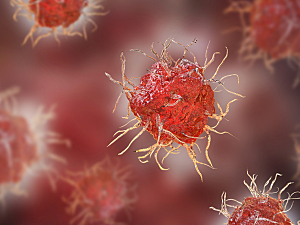Inhaled particles are sampled by airway dendritic cells (DC) in a process called macropinocytosis. Cholesterol in DC membranes is an important determinant of macropinocytosis and the ability of DCs to internalize and present antigens to prime naive T cells efficiently. These cellular processes in DCs are pivotal to the development of allergy or immune tolerance.
Certain polyisoprenyl diphosphates (PIPPs) have a role in cholesterol metabolism and other vital cellular functions, including as intracellular signals for inflammatory responses. One PIPP metabolite is presqualene diphosphate, which upon cell activation, is transiently converted to presqualene monophosphate by an enzyme called phospholipid phosphatase 6 (PLPP6).
Brigham and Women’s Hospital researchers are the first to characterize Plpp6, a mouse homolog of PLPP6, as a PIPP phosphatase that is activated in DCs after airway exposure to an aeroallergen. They consider PLPP6 likely to be a targetable regulatory checkpoint for allergic inflammation. Bruce D. Levy, MD, interim chair of the Department of Medicine and chief of the Division of Pulmonary and Critical Care Medicine at the Brigham, Thayse R. Brüggemann, PhD, instructor in the Division, and colleagues report in iScience.
Principal Findings
The research team’s key observations were:
- Mouse Plpp6 was structurally and functionally homologous to human PLPP6
- Plpp6-knockout (Plpp6–/–) mice exhibited decreased DC cholesterol content and allergen macropinocytosis, which interfered with DC antigen uptake
- Compared with wild-type mice, Plpp6–/– mice displayed decreased lung allergic inflammation in response to house dust mite extract, pointing to a role for DC PLPP6 activity in facilitating early allergen-initiated immune responses
- When wild-type mice were sensitized with allergen-exposed Plpp6–/– DCs, and then were airway challenged with the same allergen, they showed protection from allergic lung inflammation compared with wild-type mice that were sensitized with wild-type DCs
Laying the Groundwork for Therapies
These data suggest a previously unappreciated role for PLPP6 as a regulator of cell cholesterol, DC macropinocytosis, and allergen-induced lung inflammation. PLPP6 might represent a pharmacological target to modulate cholesterol biosynthesis and excess inflammatory responses to allergens.
